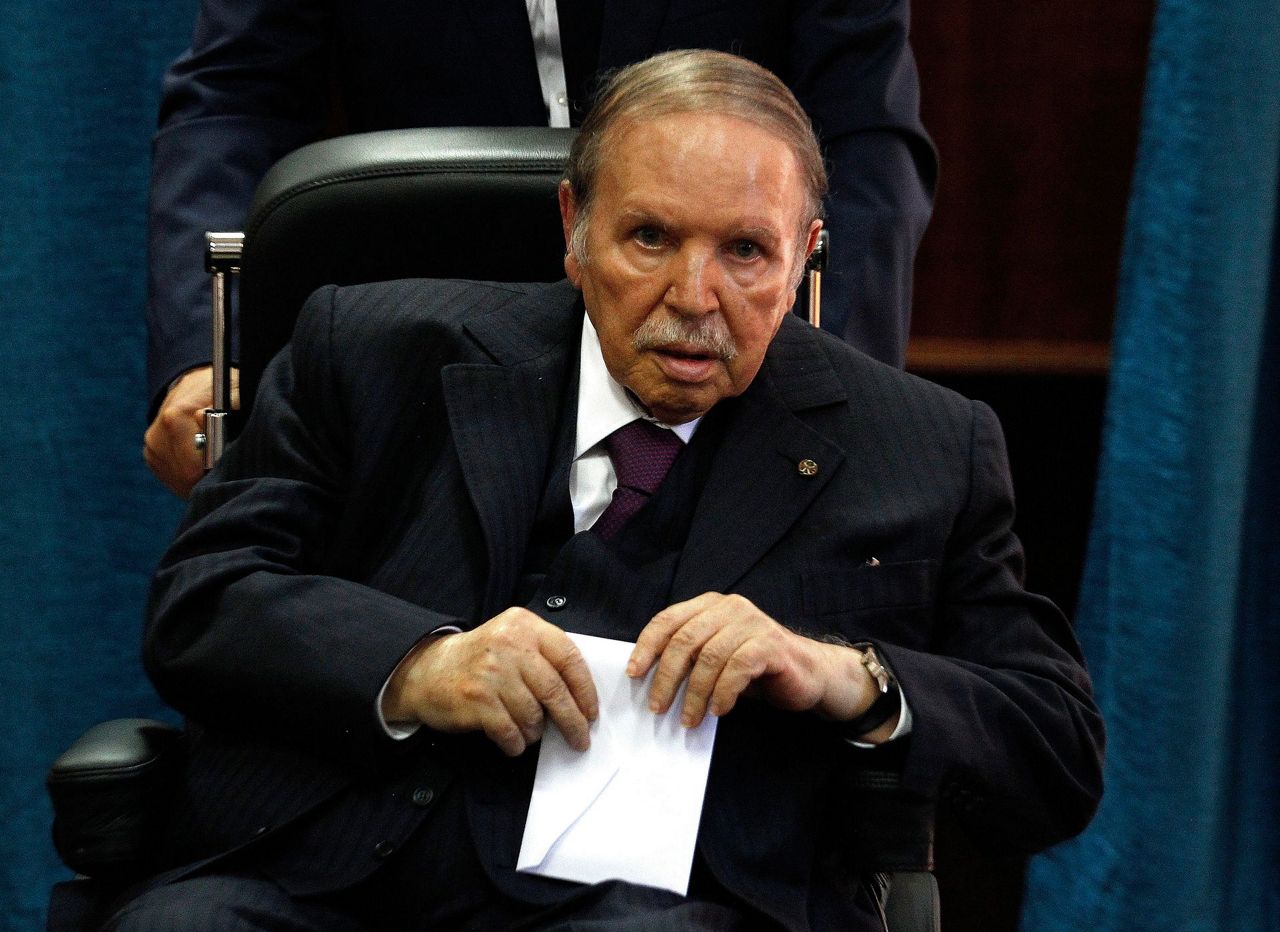ALGIERS, Algeria (AP) — The man who ruled Algeria for 20 years has resigned under pressure from protesters unhappy about years of economic decline and accusations of corruption.
As the future of the country under new leadership remains unclear, questions are swirling about what will happen to its oil and gas industry.
Here's a look at the industry and its outlook.
___
HOW MUCH ENERGY DOES ALGERIA PRODUCE?
It produced a bit over 1 million barrels of crude oil a day in 2018. By contrast, the United States pumps over 11 million barrels daily, according to U.S. government figures.
Almost 60% of Algeria's oil goes to Europe, mainly France and Britain. The U.S. used to be a big importer from Algeria but has cut those purchases as it ramped up its own domestic production.
Algeria also exports about 2 trillion cubic feet of natural gas per year, with over 80% of that going to Europe. Italy and Spain are the biggest destinations.
___
HOW LIKELY IS AN OUTAGE?
Analysts at research firm Petromatrix say that the fact that the Algerian military appeared to trigger the retirement of President Abdelaziz Bouteflika points to some level of stability. The military is seen as wanting to secure the status quo.
"This makes it unlikely that the street protests will degenerate in anything that puts at risk the oil supply," the analysts wrote in a briefing to investors.
Many production sites are also far from city centers, often in the middle of the desert, where protesters would have trouble reaching.
A bigger danger in the past has been attacks from extremist groups. In 2013, a group of Islamic extremists attacked the Ain Amenas facility near the Libyan border, taking hundreds of workers hostage. By the time the facility was freed, 37 hostages and 29 militants were killed.
___
WHAT WOULD THE IMPACT OF OUTAGES BE?
For countries that buy Algeria's oil and gas, the impact would likely not be great as there are other producers that can ramp up supply. Nations in the OPEC oil cartel did so when Iraq, Iran and Libya were producing at low levels because of internal conflicts or sanctions.
Whereas oil deliveries are made by ship and can be rerouted, natural gas is more vulnerable to disruption as it is shipped through pipelines. Here, too, the impact is not expected to be big. Algeria's biggest customer, Europe, has production of its own in the North Sea and imports from Russia, among other places. Russia delivers around 90% of its 7.5 trillion cubic feet of natural gas to Europe and has vast reserves.
Any outages could have a bigger impact within Algeria as it relies on its own energy production. And it has little spare capacity, meaning that in case of outages at some plants, it would have trouble ramping up output at other facilities.
___
HOW DEPENDENT IS ALGERIA ON OIL AND GAS?
Very. Energy accounts for over 90% of the country's exports and a third of the government's revenues. That makes it vulnerable to fluctuations in the price of oil.
Over the years, that has also distorted the local economy, where other sectors have not developed as much. The Algerian government says it has tried to make its economy less dependent on oil and gas, but progress has been slow.
And the riches from the sector are perceive to have increased corruption and helped entrench the group of ruling politicians that the protesters are demonstrating against.
Copyright 2019 The Associated Press. All rights reserved. This material may not be published, broadcast, rewritten or redistributed.





